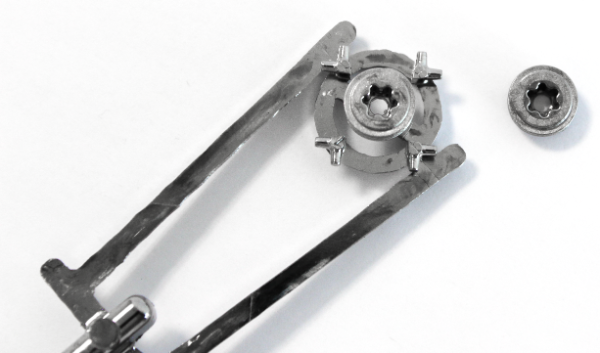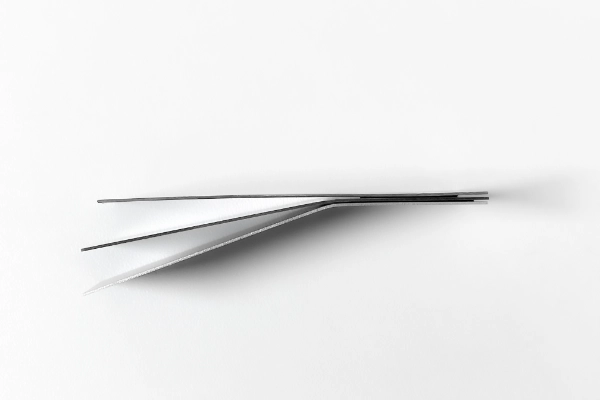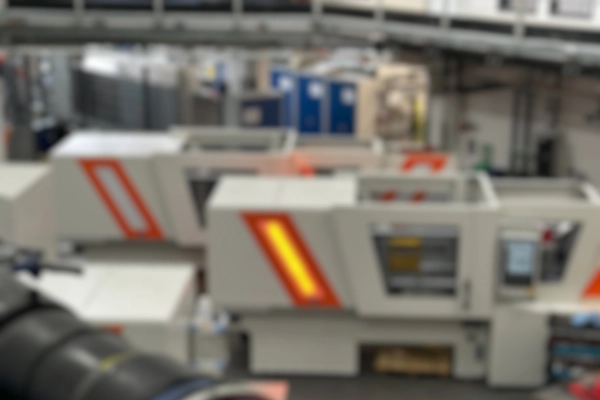Amorphous Alloys in Medical Technology
- Amorphous metals meet the requirements of ISO 10993-5 and ISO 10993-12 with regard to biocompatibility, as the cytotoxicity test shows compatibility of over 70 %. This high biocompatibility makes amorphous metals ideal for components of surgical instruments and other medical applications. In addition, a recent study showed that amorphous zirconium-based metal significantly promotes wound healing.
- The materials are resistant to corrosion, which extends the lifespan of instrument components and increases their reliability. Tests have shown that our material is ten times more resistant to steam sterilization than conventional materials such as steel 1.4117 and 1.4021. This is particularly interesting for instruments that are used multiple times.
- With an elasticity of 2%, amorphous metals are comparable to plastics. This property enables innovative design approaches, especially for applications such as spring joints and optimized force-distance ratios. The high elasticity offers advantages in the construction and functionality of technical components.
- The extremely high strength of amorphous metals makes it possible to reduce the size of components compared to conventional materials. This leads to more compact and efficient designs with the same or improved performance.
- Our special injection molding process enables reproducible and high-quality component production within narrow tolerances (±10 µm). In addition, amorphous medical components achieve an excellent surface quality of 1.0 µm, which is better than parts produced by the MIM process by a factor of 20 without post-processing.
- The optimized thermal insulation ensures a pleasant feel and is particularly suitable for use in hearing aids.
- Fields of application include surgical, endoscopic, and orthopedic instruments.

.1218711949754481985.png)
 (3).jpg)

